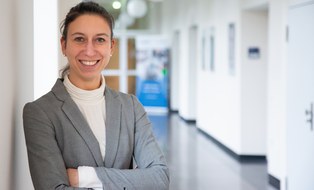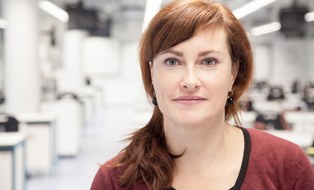fakultative Vertiefungskomplexe (fVK)
Hintergrund
Die studentische Idee einer individuellen Schwerpunktsetzung und Neigungsförderung bereits im Medizinstudium führte zur Konzeptionierung eines neuen Lehrangebots, den fakultativen Vertiefungskomplexen (fVK). Die fVK ermöglichen Studierenden sich mit Themen der Medizin vertiefend auseinanderzusetzen bzw. mit innovativen medizinisch relevanten Fragestellungen, die in fächerübergreifenden bzw. interprofessionellen Ansätzen bearbeitet werden.
Allgemeine Informationen
Fakultative Vertiefungskomplexe sind Lehrangebote unserer Fakultät mit sehr unterschiedlichen Umsetzungsvarianten. Durch Bündelung mehrerer zu einem Thema passenden Wahlfächer, durch Integration eines Wahlfachs oder gänzlich unabhängig davon mit nur extracurricularen Anteilen sind verschiedene Szenarien möglich. Bei Einbindung von curricularen Wahlfächern müssen die vom fVK unabhängig zu beachtenden Regularien bezüglich Anmeldung etc. berücksichtigt werden. Eine Übersicht aller aktuell angebotenen fVK finden Sie in OPAL
Die konkrete inhaltliche Ausgestaltung obliegt den Verantwortlichen des jeweiligen fVK, ebenso wie die Kombination der Lehrveranstaltungsarten wie z. B. Vorlesung, Seminar bzw. praktische Übungen. Der Umfang ist mit mindestens 90 UE festgelegt. Bei erfolgreicher Teilnahme am fVK erhalten die Studierenden das DresDner ZusatzZertifikat (D²Z²) der Medizinischen Fakultät Carl Gustav Carus an der TU Dresden.
Der Weg zum eigenen fVK
Sie möchten einen fakultativen Vertiefungskomplex konzeptionieren und anbieten? Die unten stehenden FAQ sollen Ihnen bei der Umsetzung helfen. Bitte zögern Sie nicht, uns bei offenen Fragen zu kontaktieren.
Wir haben einen Leitfaden erstellt, welche Punkte bei der Beantragung beachtet werden müssen. Bei Fragen wenden Sie sich gerne an
Der Aufwand bei der Entwicklung und Durchführung eines fakultativen Vertiefungskomplexes kommt natürlich vor allem auf Ihre Umsetzungsidee an. Das Carus Lehrzentrum unterstützt Sie gerne bei der inhaltlichen Konzeption, bei medizindidaktischen Fragen und bei der Umsetzung. Unsere studentischen Hilfskräfte können Ihnen aus studentischer Perspektive zuarbeiten oder bei der digitalen Kurserstellung helfen.
Prof. Dr. med. Mario Rüdiger, Pädiatrie
"Mit dem Vertiefungskomplex besteht die hervorragende Möglichkeit, bereits im Studium wichtige Aspekte der interdisziplinären, transsektoralen und multiprofessionellen Versorgung vermitteln zu können. Damit werden die starren Fächergrenzen aufgehoben und die Realität der Betreuung widergespiegelt. Das Zentrum für Feto-Neonatale Gesundheit ist angetreten, die Versorgung der Schwangeren und Neugeborenen in der Region Ostsachsen zu optimieren. Die dafür notwendigen medizinischen, psycho-sozialen und wissenschaftlichen Grundlagen der feto-neonatalen Entwicklung werden im Rahmen des Vertiefungskomplexes nicht nur vermittelt sondern durch die Studierenden aktiv erarbeitet.“
Prof. Dr. rer. nat. Martin Sedlmayr, Clinicum Digitale
"Das Lehrformat der Vertiefungskomplexe ermöglicht mir als Professor für Medizininformatik ein Kursangebot außerhalb der regulären curricularen Inhalte anzubieten. Die Digitalisierung wird das Berufsbild der jetzigen Studierenden verändern, doch leider kommen die Chancen und Möglichkeiten (sowie Grenzen) der Digitalisierung in ihrer Ausbildung noch viel zu kurz. In dem Vertiefungskomplex Clinicum Digitale können wir interessierte Studierende für die neuen Anforderungen fit machen."
Ansprechpartnerinnen
Bei Fragen und Anregungen zum Projekt "fakultative Vertiefungkomplexe" wenden Sie sich bitte an die Projektkoordinatoren.
Organisatorische Betreuung
 © Stephan Wiegand
© Stephan Wiegand
wiss. Koordinatorin
NameFrau Dr. Doreen Pretze
Eine verschlüsselte E-Mail über das SecureMail-Portal versenden (nur für TUD-externe Personen).
Fachliche Betreuung

